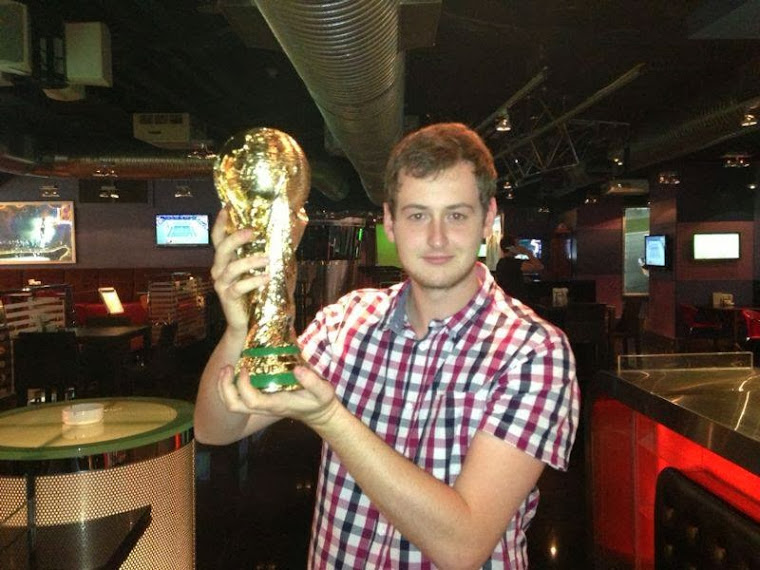Years gone by and the MCG has always been a ground where England falter, but last night was a completely different story and really gave England fans the performance they so desperately wanted on Christmas Day.

Winning the toss was an important start to the day. The pitch and the coniditons suited the bowlers, so it was important for England to win the toss and Strauss did just that, putting Australia into bat and giving the ball to James Anderson and Chris Tremlett. An advantage for the English conditions was the inclusion of Tim Bresnan who has replaced Steven Finn for this fourth test. Despite Finn being the leading wicket taker in the series heading into this test at Melbourne, concerns over his fitness and his expensive economy rate in the last test gave the England coaching staff some cause for concern and hence the decision was taken to replace the 21-year-old with the more controlled swing bowling of Yorkshire seamer Bresnan.
Australia were unchanged and it was a move which surprised many, with Ponting originally expected to put a spinner in, either youngster Michael Beer or the more experienced choice of Nathan Hauritz who surprisingly still has not featured in this year's Ashes series.
England needed to strike early and they did. Chris Tremlett bowling an unplayable length which Watson struggled to deal with and he found the top edge falling straight to Kevin Pietersen in the gully, and it was a wicket coming sooner rather than later, evidence perhaps that the opener was dropped twice before eventually falling to the pace and bounce of Tremlett.
The day's highlight was a combination of wonderful swing bowling from the England bowlers, and some poor shot selections from the Aussie batsmen, including opener Phillip Hughes, Steven Smith along with many others. James Anderson and Chris Tremlett in particular were superb, getting the ball to swing beautifully and bowling a line which the Australians just found difficult to deal with. Both Anderson and Tremlett finished with four wickets apiece, with Bresnan getting the other two. The quality of the bowling was evident in the way the wickets fell. All wickets were catches behind or toward the slips corden, and six of these came courtesy of the gloves of wicketkeeper Matthew Prior, so England's bowling was evidently one of persistency and consistency.
The collapse of Ricky Ponting for just 10 was again a sign the form of the Australian captain is still a worry for the home side, and the early departure of on fire Mike Hussey was a key blow to the structure of the innings. Hussey has been Australia's most important bastman in the first three test matches with a minimum score of 51 and averaging just over 104 for the series. But, the pace and swing of Anderson proved too much this time for the Aussie number 5, and Hussey edged to Prior, falling for just 8. The English celebrations were a sign of how important getting Hussey so early was to the rest of the innings.
Michael Clarke offered some resistent with a valiant 20, but even the shot for his wicket was loose, along with Brad Haddin, who was caught behind off the bowling of Bresnan. Johnson fell for a duck and even though there were some run-scoring swings of the bat from Peter Siddle and Ryan Harris, Australia could only manage a total of 98, the lowest first innings ever at Melbourne. England immediately had control of the test match, just two sessions into a five day test.
The reply was just as important as the previously achieved bowling performance. It would seem a waste had England themselves had collapsed and given themselves no hope of winning the test match and in turn, The Ashes. However, the batting frustrated Australia and our boys ended up on 157-0 at the close of play, Cook passing 80 and Strauss not out in the 60s.
A ground which can hold up to 91,000 people was brimming with excitement before the day's play. Yet at the end of play, all that remained were a few Australians along with the hoard of English people as units of the Barmy Army singing their hearts out.
This first day at the MCG has signaled England's intent to regain that beloved Ashes urn, but never write off Ponting's side, as time after time after time again, the Australians prove to be a bigger force in the cricketing world than any other known, but with Strauss' men focused, and the Aussies somewhat lacking authority, the urn could be making the plane journey back to England sooner rather than later.
The reply was just as important as the previously achieved bowling performance. It would seem a waste had England themselves had collapsed and given themselves no hope of winning the test match and in turn, The Ashes. However, the batting frustrated Australia and our boys ended up on 157-0 at the close of play, Cook passing 80 and Strauss not out in the 60s.
A ground which can hold up to 91,000 people was brimming with excitement before the day's play. Yet at the end of play, all that remained were a few Australians along with the hoard of English people as units of the Barmy Army singing their hearts out.
This first day at the MCG has signaled England's intent to regain that beloved Ashes urn, but never write off Ponting's side, as time after time after time again, the Australians prove to be a bigger force in the cricketing world than any other known, but with Strauss' men focused, and the Aussies somewhat lacking authority, the urn could be making the plane journey back to England sooner rather than later.

